Young Chinese winners of James Dyson Award showcase creative quality of life solutions
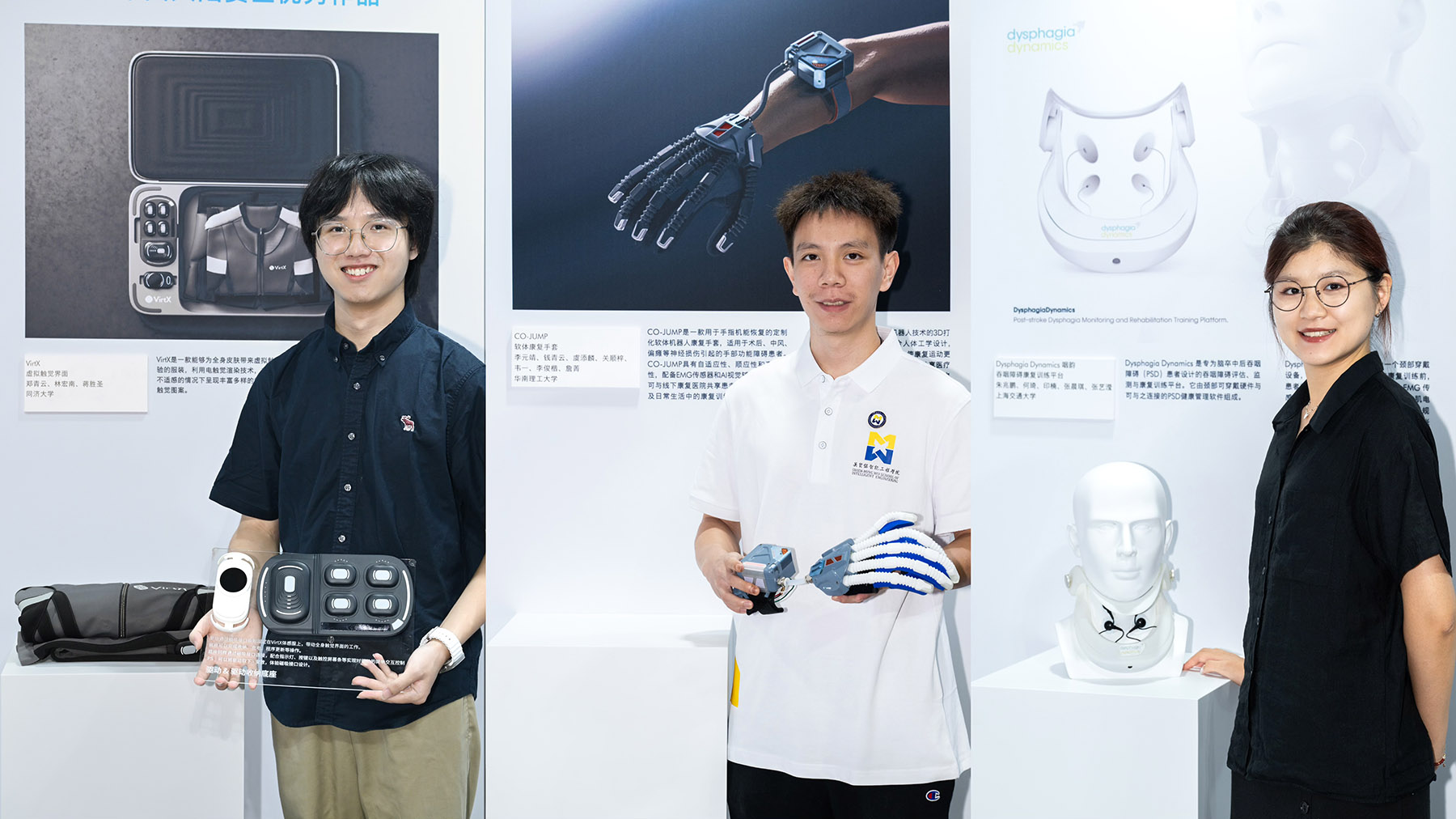
The top three winners of the Chinese mainland round of the James Dyson Award for design innovation had one thing in common this year — they were all focused on improving people's life quality.
The team that took the top spot at the awards this year, announced at a ceremony held in Shanghai on Sept 12, consisted of a trio of young innovative thinkers.
Zheng Qingyun, Lin Hongnan and Jiang Shengsheng have developed a tactile suit using innovative textiles to render high-resolution tactile sensations, designed to help those with hearing loss experience sound through touch.
READ MORE: Country achieves crucial technological breakthroughs
It took two years to develop the VirtX full-body virtual haptic suit, said Zheng, 24, a postgraduate student at Tongji University in Shanghai, adding that it opens the door to enabling those with hearing loss to feel the world in a more immersive way.
The team that took second place designed a soft robotic rehabilitation glove called Co-jump, primarily aimed at helping people recover from stroke.
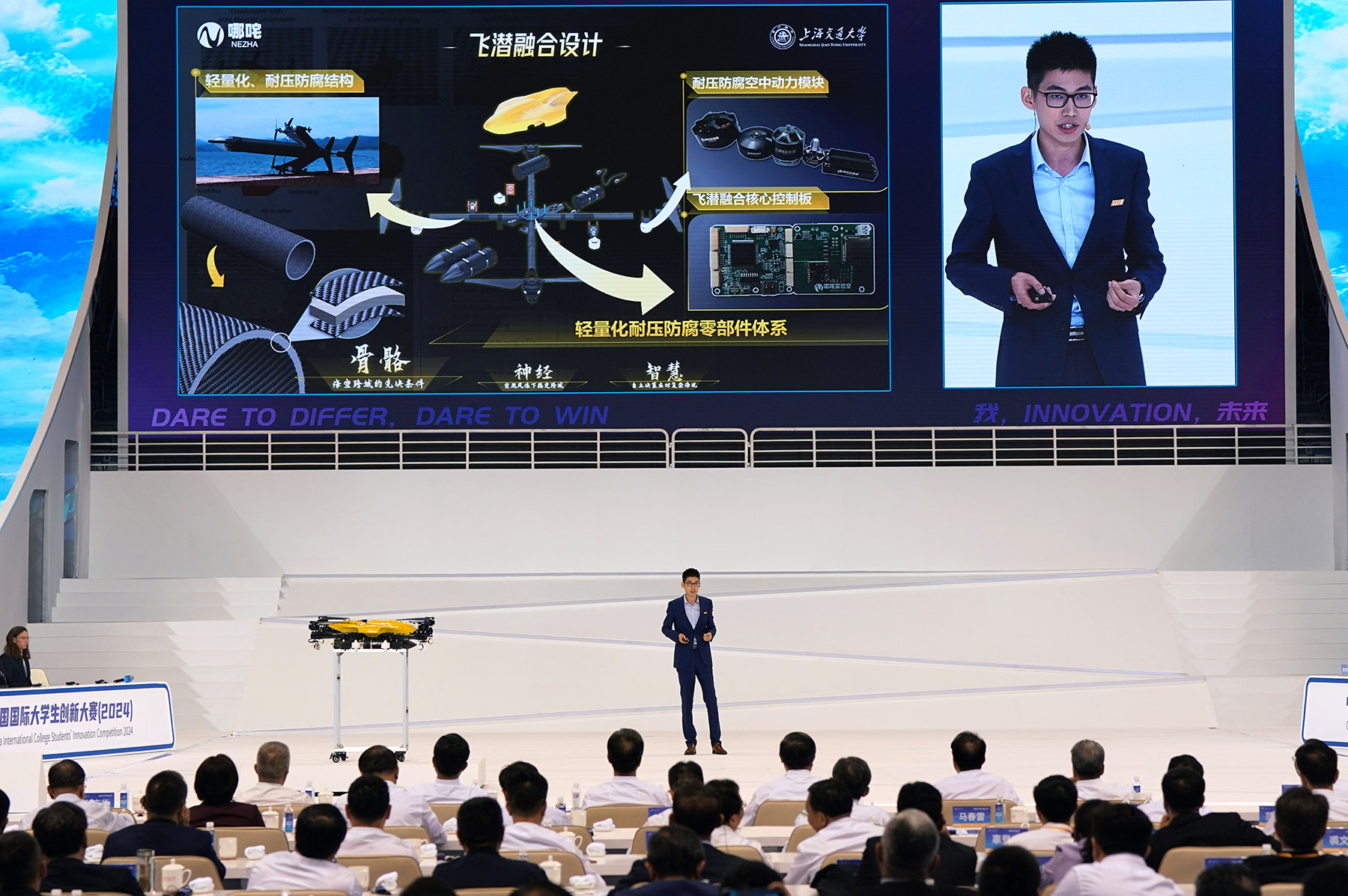
Team member Li Yuanjing, 24, a postgraduate student from South China University of Technology, said that initially their research focused on helping people with flat feet, but realizing this focus was too narrow the team turned to stroke rehabilitation.
"While carrying out our research on rehabilitation, we were surprised to discover an extremely large number of stroke cases in China, with over 2 million cases per year," Li said.
According to Li, existing rehabilitation gloves on the market are too bulky, weighing 2 to 3 kilograms each, so their design is centered around being lightweight.
"The special glove we've designed weighs just over 600 grams. It's customized and equipped with electromyography sensors and artificial intelligence-powered visual assistance for finger function recovery, which ensures the user experience is comfortable and safe," Li said.
Targeting patients with hand dysfunction caused by impairments from surgery, stroke and hemiplegia, the glove enables users to recover at home.
Third place at the James Dyson Award also focused on those recovering from stroke, particularly those experiencing swallowing difficulties.
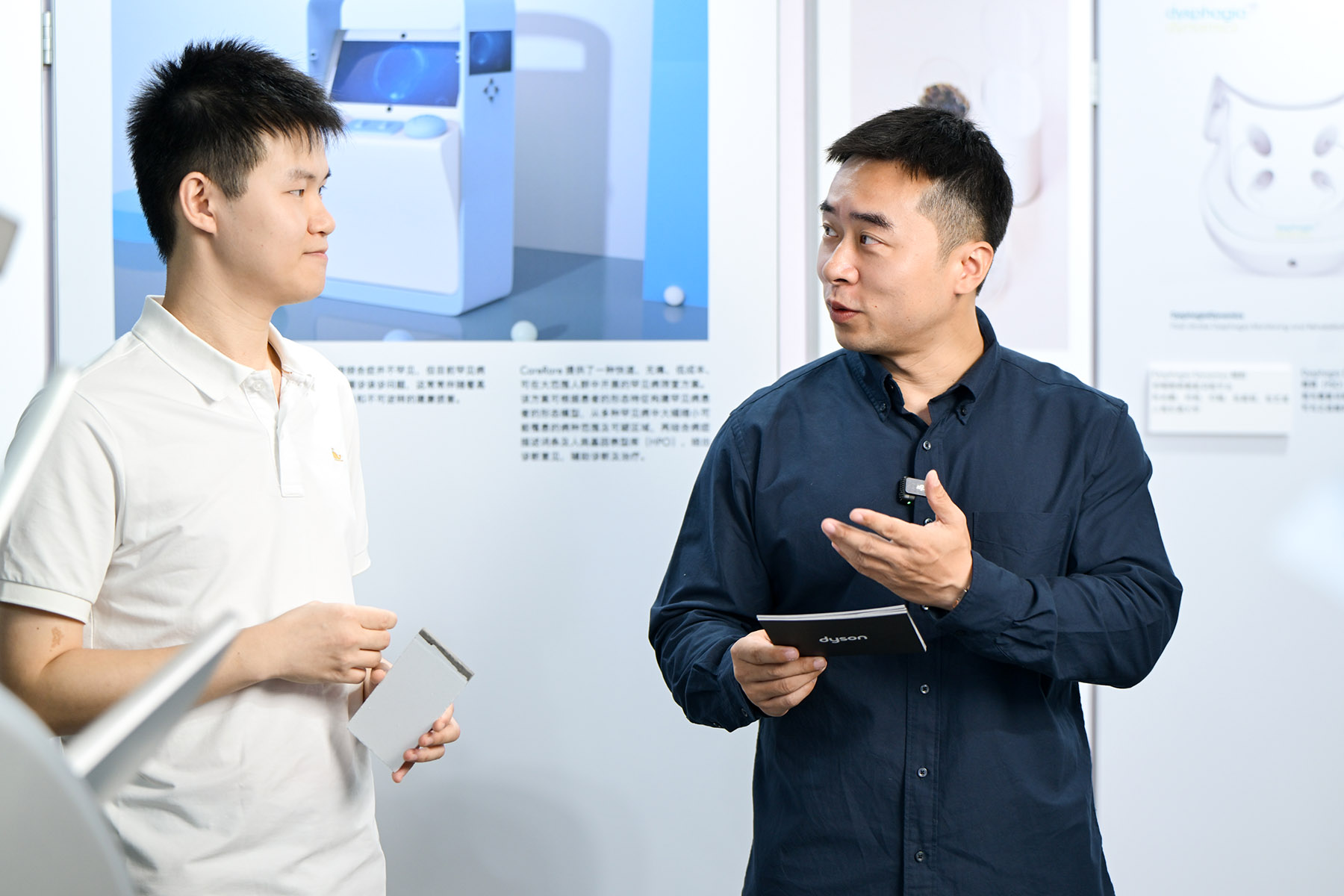
Dysphagia Dynamics is a smart assessment, monitoring and rehabilitation platform designed for patients with post-stroke dysphagia, and consists of a wearable neck device and health management software.
The rehabilitation program is designed to assist patients in swallowing, and consists of a swallowing disorder assessment, monitoring and rehabilitation training platform specifically designed for patients with post-stroke dysphagia. It comprises wearable hardware for the neck and accompanying post-stroke dysphagia health management software that can be connected to various medical hardware.
According to Yin Nan, a member of the team behind the medical device, dysphagia is one of the most common complications after stroke, and at present there is a lack of low-cost and noninvasive means for assessment and intervention.
"These patients are leading a low-quality life, and their families are under a great burden too," said Yin, 24, a postgraduate student at Shanghai Jiao Tong University.
Although development is still in its initial stages, Yin said the team is optimizing and improving the hardware and software to expand testing to different patient groups with varied conditions, so as to upgrade the device to better meet the clinical needs of patients.
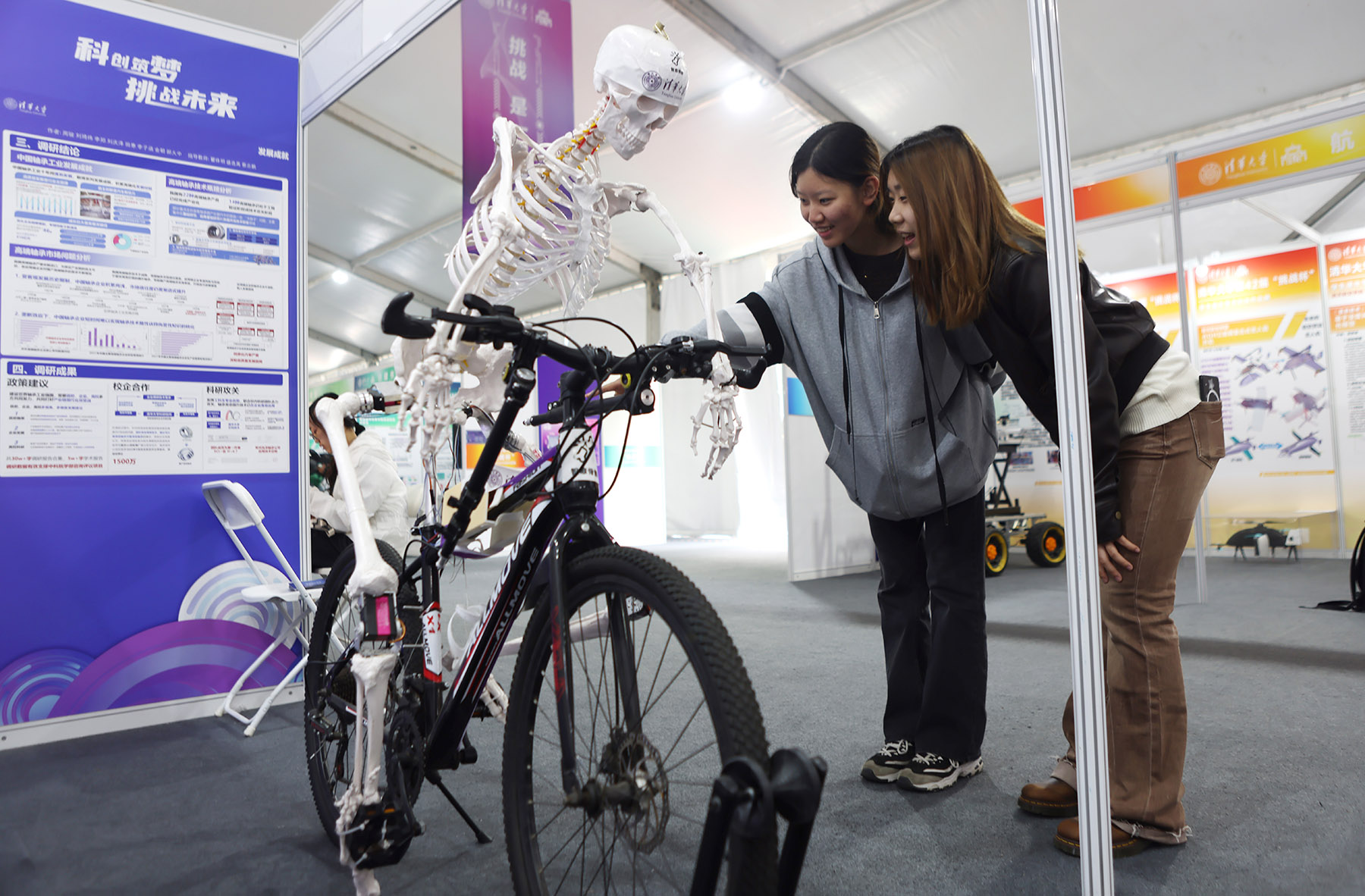
Singapore-based home appliance maker Dyson first held the James Dyson Award on the Chinese mainland in 2016, aiming to attract young Chinese inventors to showcase their creativity and innovation.
"This year's winners have paid great attention to the humanistic and innovative thinking of the young generation inventors, and the designs highlight the many possibilities of the original design to promote social progress," said Hu Hongfei, senior electronics manager at Dyson, during this year's awards ceremony in Shanghai.
Hu said he is very glad that the design competition has offered a platform for promising and innovative talents, and hoped the event can bring more original designs and greater social value.
This year's event attracted 612 original designs.
In the past nine years, the competition has received more than 3,000 entries, and seen the participation of more than 20,000 university students across China.
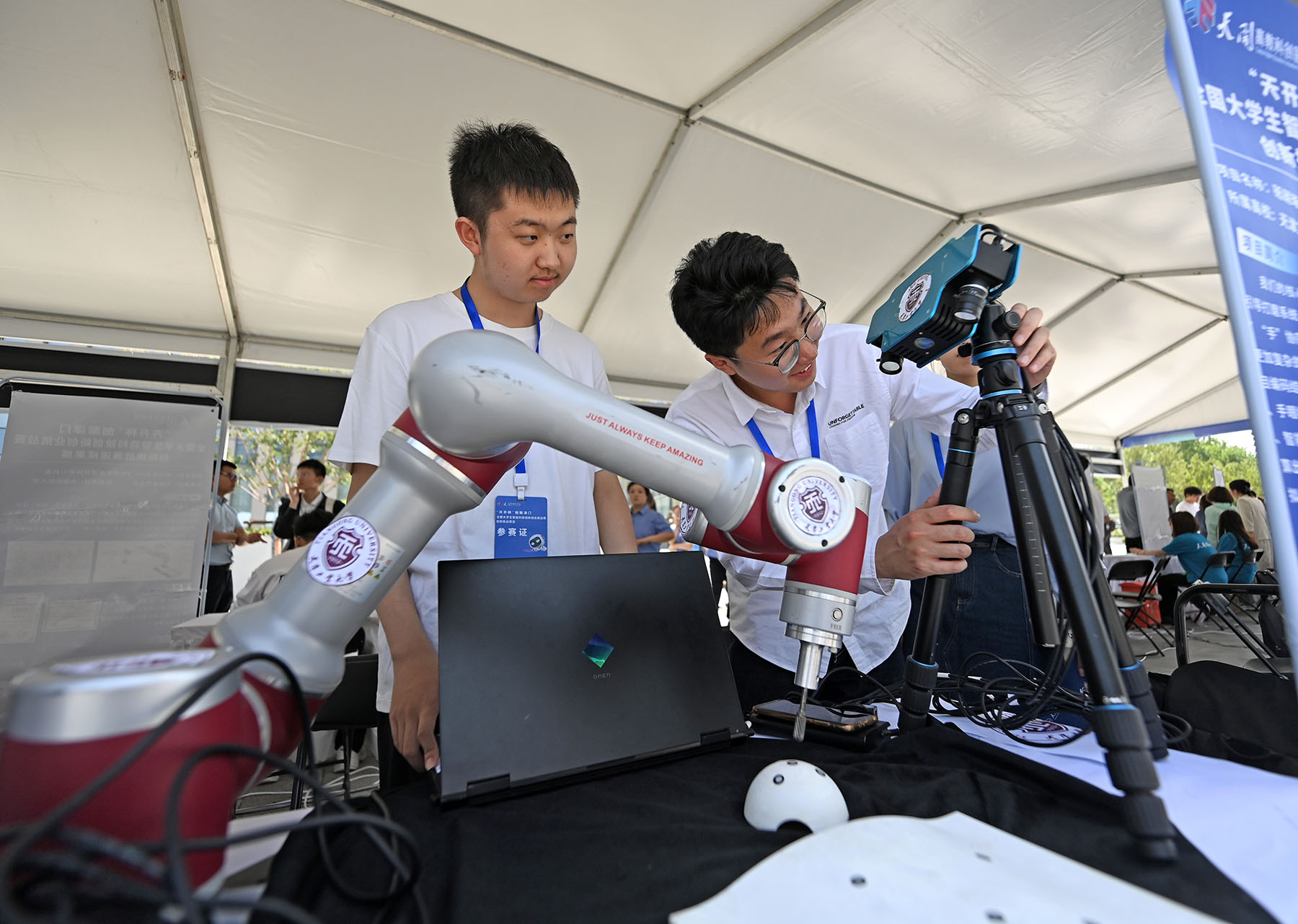
During the awards ceremony, a collaborative education program was announced between Dyson and Shanghai Jiao Tong University for postgraduate students specialized in design.
Wen Xiaojing, director at Shanghai Jiao Tong University's School of Design, said the cultivation of innovative talents requires both solid theoretical knowledge and cutting-edge industrial insights and practices.
"It is hoped that this cooperative course can stimulate the students' original potential and encourage them to endeavor to create inventions with social value and industrial potential," Wen said.
ALSO READ: Lin-gang a hothouse for incubating success, pioneering tech
The James Dyson Award is just one of many competitions that offer stages for college students and young people in China with innovative dreams and aspirations.
In addition to competitions organized by renowned enterprises, the Ministry of Education organizes or accredits dozens of national student competitions for inventions and innovative designs.
More than 5 million projects from 5,406 colleges from China and abroad participated in the China International College Students' Innovation Competition 2024, which concluded last month. Nezha, a machine invented by a team from Shanghai Jiao Tong University that can both fly like a drone and dive into the ocean for scientific missions, won the eventual championship.


